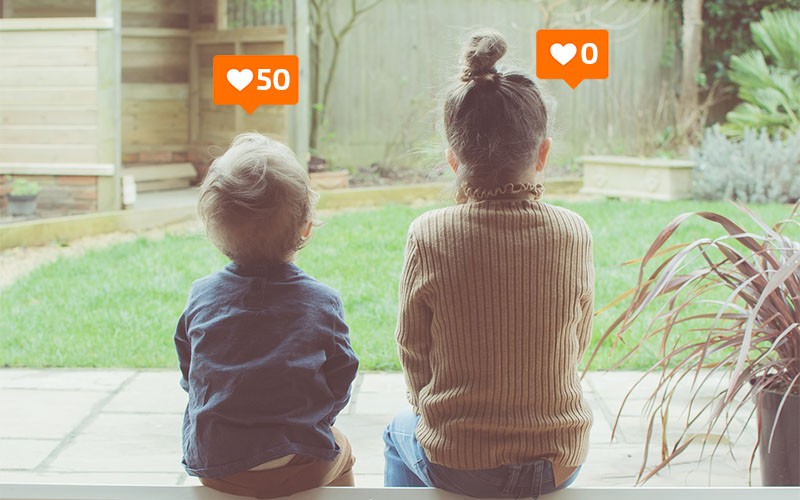Motherhood isn’t an easy job. It has a load of responsibilities and obligations involved. The difficulties are even greater when you have more than one child. Not only do you have to look after them as individuals, you also have to oversee their relationship as siblings, so that everyone feels like they have a space and a role to play in the family. So what do you do when one of your children feels overshadowed by their brothers or sisters?
The first step in reaching a solution is to understand the source of the problem. How could overshadowing happen if we are the same parents with the same methods of raising them? There is no exact rule: the older child may overshadow the youngster or vice versa but either way it can develop significant rivalry, jealousy and a feeling of inferiority.
The precise reason that this problem arises differs from one family to another, however according to child psychologist Sherein El Rayess, “A common cause is genetics. Genetics create our tendencies and depending on the environment can develop into traits”. However, our actions as parents also play a big role, as Sherein tells us, “one factor that can lead to overshadowing is speaking about one of the children in front of the other, whether positively or negatively as it generates comparisons”.
“In cases where the elder sibling overshadows the younger, this can come from parents giving the eldest child too much responsibility.”
Sherein goes on to explain, “In cases where the elder sibling overshadows the younger, this can come from parents giving the eldest child too much responsibility. We often make our elder children our helpers, the caretakers of their siblings thus they believe that they have rights over their other siblings. As well as this, we are often harsher on the elder when they make a fault, always giving the excuse that your sibling is still young and unaware”.
If the situation is reversed with the younger sibling overshadowing the elder, Sherein suggests, “that may have been caused by the regression of the elder sibling with the birth of a new sibling and our overprotectiveness of the new arrival”.
What are the effects of this overshadowing?
If the overshadowed child is loving by nature then no great issue will arise, as they will accept the other and learn how to adapt. However if that is not the case according to Sherein, “it can lead to jealousy arising and a lack of understanding between the two children. This can even inhibit them building feelings and empathy, something that may be single or double sided”.
“Giving the children space to find their own way separate from their siblings helps them to not feel compared and thus overshadowed.”
What should you do about it?
As Sherein states, “the best age of changing a child’s behavior is the first seven years of life, when he is more capable of change. Later on, they might more easily understand the problems because of the more developed cognitive abilities but change will require much more effort”.
However, before retraining your child we must ask you to retrain yourself as parents. Do not allow yourself to make one of your children your helper, just to make your life easier. Sherein advises “Yes, he/ she must be responsible but they must be responsible about themselves, the rest of their siblings are your responsibility not theirs.” Giving the children space to find their own way separate from their siblings helps them to not feel compared and thus overshadowed.
We must forget the phrase, “You are young and he is old” or vise versa. This phrase is a barrier to learning and encourages overshadowing. “You must explain to your younger child that the elder child got something at this age and so shall you when you reach that age”, Sherein suggests. Phrasing it in such a way has a more positive impact on how your child perceives age differences.

